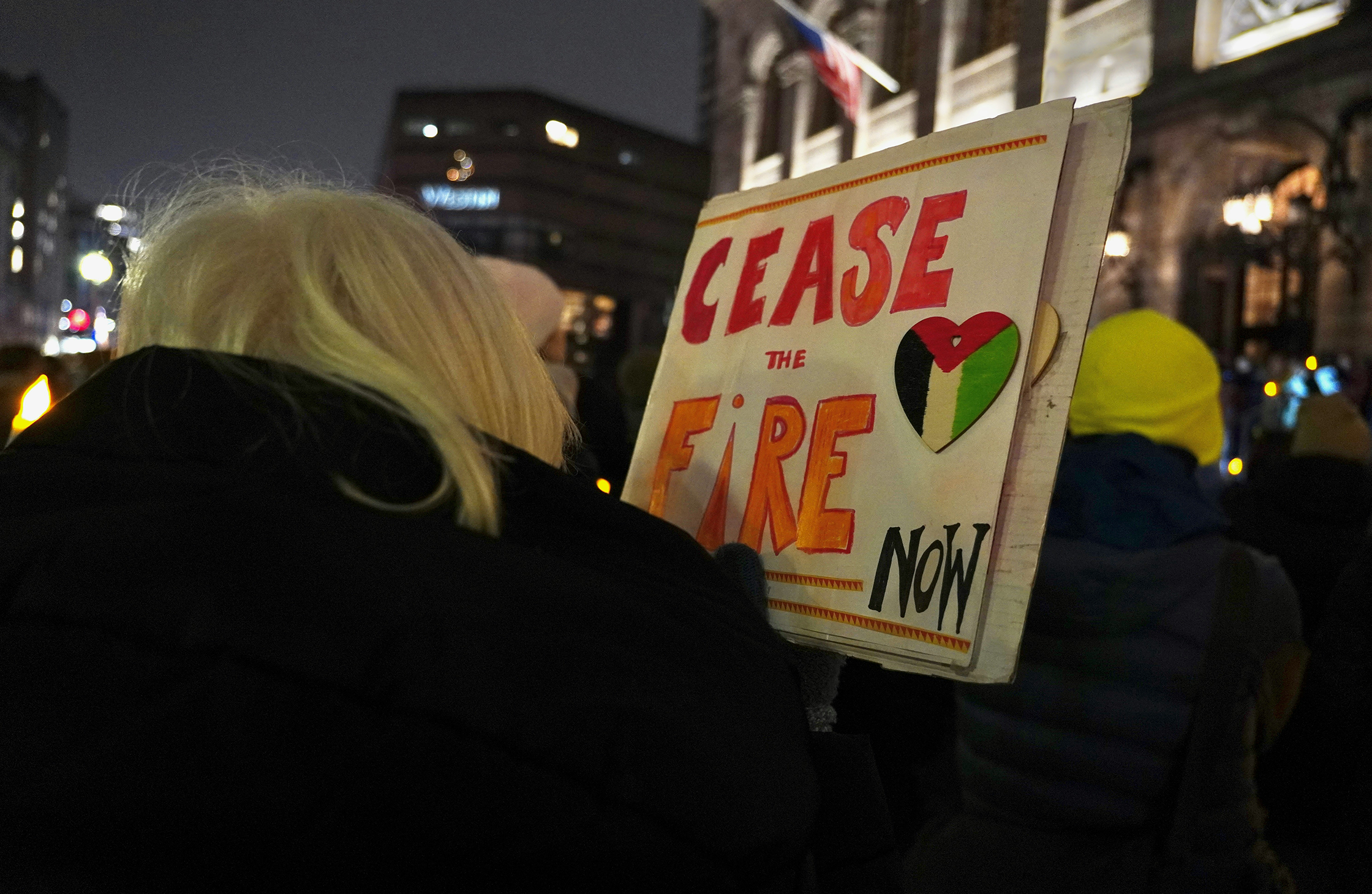Photo by Brett Wharton on Unsplash
Have we become so inured to the killing that we believe it is unavoidable?
It has been over a year since violence exploded in Gaza following the brutal Hamas-led attack in southern Israel. Innocent civilians continue to be killed every day as they try to escape the relentless military attacks and search in vain for food, shelter, and medical care amid a near total block on international humanitarian aid. The disproportionate response that has killed more than 50,000 people is “by far the most intense, destructive, and fatal conflict for civilians ever documented,” according to a recent report from Airwars, an organization that monitors civilian casualties in war.
The violence has since expanded into Lebanon, the West Bank, and now Syria.
But the killing isn’t new. Violence between religious and ethnic groups in the region has been a daily fact of life for over a century. More than 100,000 people have been killed since Israel declared itself to be an independent state in 1948, after which war broke out between Arabs and Israelis, and 750,000 Palestinians — many living on ancestral land that had been in their families for centuries — fled or were forcibly expelled from their homes and not allowed to return. Today, nearly six million Palestinians are recognized as refugees by the United Nations.
The prospect of peace is no closer today than it was a century ago. War has failed to bring lasting peace, and yet the wars continue.
Many of us justify the violence by choosing sides. Our own experience and biases tell us who is right and who has the moral superiority. We argue over who started the war and who deserves the violence inflicted upon them. We rationalize the use of violence because ‘they’ started it.
We justify our support for violence in how we respond to any protest against the conflict. If we express sympathy for the Israelis killed and injured by Hamas, that sympathy is interpreted to mean we support Israel’s devastation of Gaza. If we speak out against the destruction and deaths of innocent Palestinians, our words are interpreted as supporting the terrorist acts of Hamas.
But the choice of who to support shouldn’t be about who has the greater moral or legal right to violence. The choice should be whether violence is the moral choice at all.
Violence has been used to resolve conflict throughout human history. Sometimes the threat of violence can act as a deterrent. The threat of unimaginable violence in response to a nuclear attack, a concept known as mutually assured destruction, has, so far, prevented the use of a nuclear weapon since the end of World War II.
But threats don’t prevent violence, and humans continue to kill each other. There has never been a time without violent conflict in some part of the world.
To make war seem more just, so-called ‘rules of war’ have been established through international agreements that define acceptable uses of violence, distinguishing legal acts of war from war crimes. But by enacting rules for waging war, we implicitly concede that war is acceptable and an unavoidable means to resolve our differences.
The United States has long been Israel’s strongest ally, providing billions of dollars in military aid every year. That aid has directly funded the destruction of Gaza and the attacks in Lebanon, essentially without condition. Although the Biden administration has called for restraint and protection of civilians, and has repeatedly asked for additional humanitarian aid for Gaza, Israeli forces continue the violence with impunity, killing a vastly disproportionate number of innocents in the name of destroying Hamas and Hezbollah.
Gazans are without food and water, famine has set in, and humanitarian relief has been blocked. In addition to those killed with guns and bombs, countless others have died from injury, disease, and lack of health care. Millions have been displaced with no escape to safety.
Peacekeepers have been killed, journalists have been killed, aid workers have been killed, Americans have been killed … and the violence continues.
Iran-backed militants respond with rockets and terrorist attacks, and Israel continues to escalate the war. How many more must die before the killing stops?
Dr. Martin Luther King, Jr. was adamantly opposed to violence as a means to achieve justice and peace. He was against war. His words following his acceptance of the Nobel Peace Prize are as relevant to the Israeli-Palestinian conflict today as they were in response to civil unrest and the Vietnam War sixty years ago:
“Violence as a way of achieving racial justice is both impractical and immoral. I am not unmindful of the fact that violence often brings about momentary results. Nations have frequently won their independence in battle. But in spite of temporary victories, violence never brings permanent peace. It solves no social problem; it merely creates new and more complicated ones.
Violence is impractical because it is a descending spiral ending in destruction for all. It is immoral because it seeks to humiliate the opponent rather than win his understanding; it seeks to annihilate rather than convert. Violence is immoral because it thrives on hatred rather than love. It destroys community and makes brotherhood impossible. It leaves society in monologue rather than dialogue. Violence ends up defeating itself.”
— Martin Luther King, Jr. (December 11, 1964)
Attacks on Israel will not bring peace. Bombing Gaza into oblivion will not bring peace. Killing tens of thousands of innocent Palestinians in an attempt to destroy Hamas and Hezbollah will not bring peace. Violence by Israeli settlers against Palestinians in occupied territories will not bring peace.
The United States must use its influence to broker a ceasefire now. Continuing to supply weapons and billions of dollars in military aid to Israel without condition only perpetuates the violence while millions continue to suffer.
We Americans are complicit in the violence.
Some say that calling for peace is naïve, and that the situation in the Middle East is too complicated. But it is only complicated when we refuse to see the possibility of a peaceful solution — when we focus more on assigning blame instead of seeing the humanity in each other.
Nelson Mandela said, “When we dehumanize and demonize our opponents, we abandon the possibility of peacefully resolving our differences, and seek to justify violence against them.” He also said, “No problem is so deep that it cannot be overcome, given the will of all parties, through discussion and negotiation rather than force and violence.”
Perhaps the Ubuntu philosophy of our universal interconnected humanity, the principles upon which Nelson Mandela and Desmond Tutu based South Africa’s Truth and Reconciliation Commission to achieve peace after apartheid, could form a basis for a path to peace in Gaza.
A ceasefire in Gaza and Lebanon can temporarily stop the violence, but until the humanity of every Palestinian, every Israeli, and every human being is recognized and protected, lasting peace will not be achieved. For it is only when we finally believe in the right of every human being to live in a world of peace, a world of equal rights and equal opportunities, a world where we agree to settle our differences without violence, that we will finally achieve a world of peace and justice for all.
May that day come before we lose the capacity to see our shared humanity in each other.
Ted Miller grew up around the world but now lives in Richland with his wife. He’s a runner, actor, singer, nuclear engineer, and graduate of the U.S. Naval Academy.
Ted believes that if more people worked toward love and understanding instead of giving in to fear and divisiveness, the world would be a better place.


